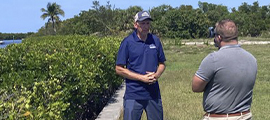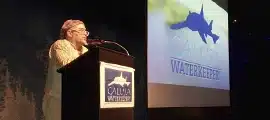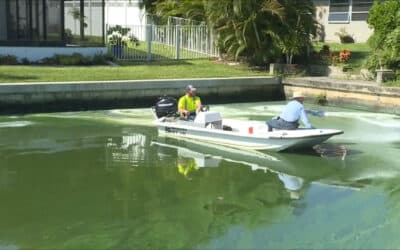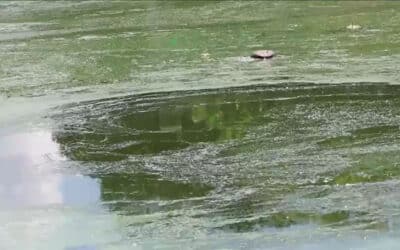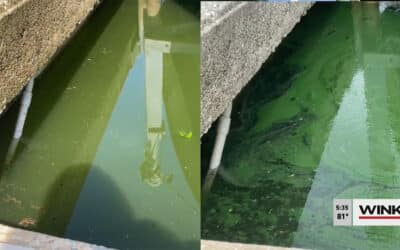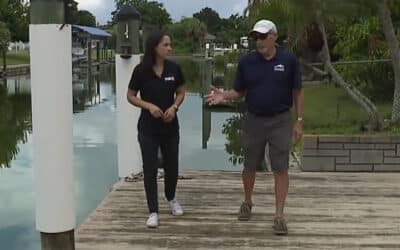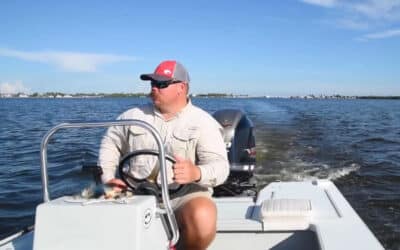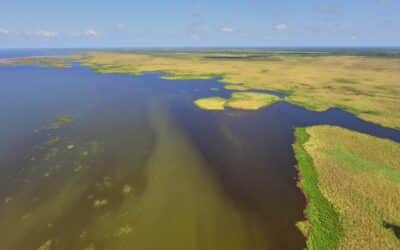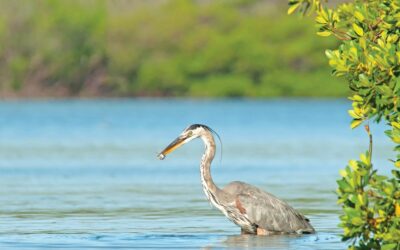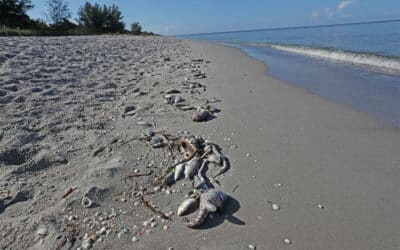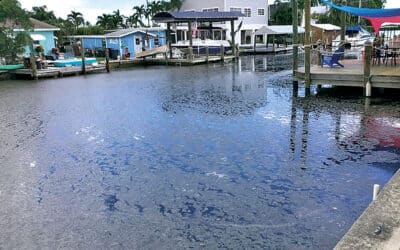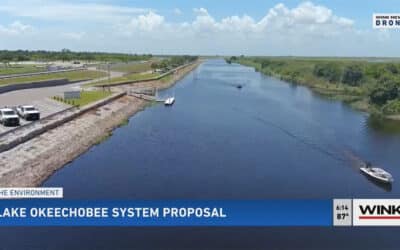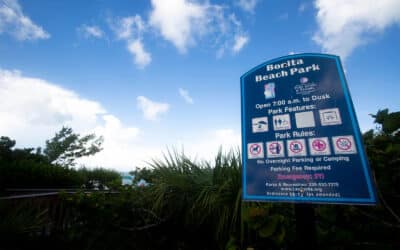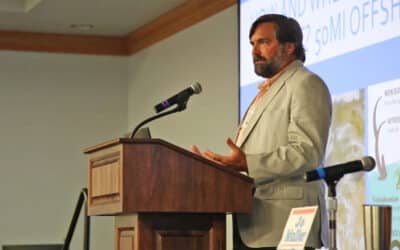Calusa Waterkeeper
In the News
Lee County Partners with Environmental Company to help Treat Blue-Green Algae
From the greenish color of the water to the odor that comes from it, now the work to handle the blue-green algae bloom is in North Fort Myers. Lee county brought an Environmental company to help treat and restore a waterway.
Toxic Blue-Green Algae Becoming a Possible Health Concern for North Fort Myers Residents
Cyanobacteria has taken over the canals of Waterway Estates in North Fort Myers, a canal system along the Caloosahatchee. Photos taken show huge, green mats of bad-smelling blue-green algae, but now scientists are concerned it could be harmful to breathe for people living nearby.
Update on Blue-Green Algae in Little Lake Michigan Canal
The blue-green algae in the Little Lake Michigan Canal appears to have been broken up by the recent heavy rain. Just because it is no longer visible on the surface, experts say that doesn’t mean that it’s gone.
Blue-Green Algae found in North Fort Myers Canal has Homeowners Feeling Uneasy
Blue-green algae have been found in a North Fort Myers canal and people are not only seeing it but smelling it as well. It blooms during this time of year, but one homeowner along the canal says in her 20 years here she has never seen it in her own backyard.
Matlacha Pass Water Quality with Capt. Codty Pierce
Capt. Codty Pierce shares his observations on Matlacha Pass water quality and boating pressure. Matlacha Pass is a State Aquatic Persevere and designated an Outstanding Florida Water (OFW), but it is also verified impaired for nutrients, fecal bacteria in shellfish, and more.
Lake Okeechobee is at Dry Season Levels During the Height of Rainy Season
Lake Okeechobee levels are low with only six weeks left in the rainy season, a scenario that could put seagrasses, oysters and marine critters that rely on the Caloosahatchee estuary in trouble.
ECCL to Hold Public Forum on Water Quality & Environment
The Estero Council of Community Leaders is holding a town-hall style Public Forum on Greater Estero Water Quality and Environment Actions and Solutions at The Water School at FGCU at 5 p.m. Thursday, Oct. 13.
New Study Shows Red Tide Exposure can Cause Neurological Woes
A new study by Sarasota’s Roskamp Institute shows breathing red tide toxins can cause neurological problems. More than 250 volunteers from Lee, Collier, Charlotte, Sarasota and Manatee counties helped with the Roskamp study, published in the peer-reviewed journal Harmful Algae.
Local Algae Bloom Task Force Provides Latest Information for Area Waters
Waterkeeper Ranger Sue Dahod, facilitator of the Pine Island Algae Bloom Task Force, provided an update on the condition of the water in Matlacha. She and Waterkeeper John Cassani took a water sample and identified it primarily as Blue-Green Algae and was positive for low levels of Saxitoxin.
Public Comment Wanted for Lake Okeechobee Water Management Plan
The U.S. Army Corps of engineers needs your help on a proposal for Lake Okeechobee. They’re asking for people’s opinions on a plan that would send more water to the Everglades. The goal is to protect the water supply and reduce the need for harmful discharges in the northern estuaries.
Who can Close Southwest Florida Beaches when Water Quality is Poor?
If you want to swim in poop-, red tide- or cyanobacteria-contaminated waters, Florida’s health department isn’t going to stop you – in Lee County, at least. When enteric bacteria levels were high at Bonita Beach last month, people went right on splashing around in the warm Gulf.
Red Tide not Expected to Impact Southwest Florida this Year
More than four years have passed since a devastating and deadly red tide ravaged Southwest Florida, killing off millions of tons of marine life and shutting down the local tourism industry. And while late summer and early fall are when blooms typically initiate, red tide levels are at normal, background concentrations so far this year.

















